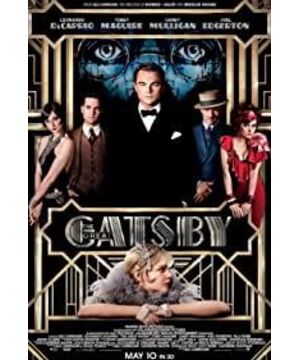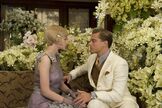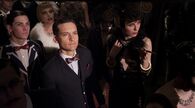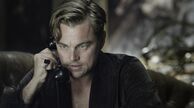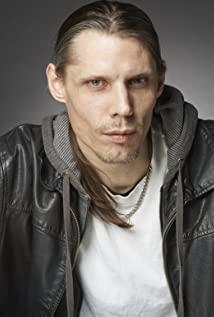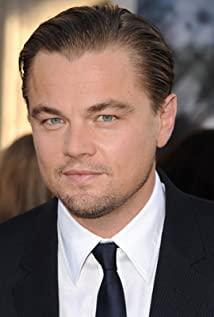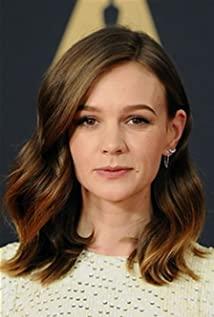So I watched "The Great Gatsby" with high expectations. Originally, I wanted to make a statement: I have read this novel by Fitzgerald twice, and I feel bad. Of course, it may also be translated. reason. My high expectations for the movie came from trying to make it rekindle my interest in the masterpiece, and even I thought that such a story might be a second-rate novel, but it could be a first-rate movie. With that flashy temperament and exaggerated character modeling, the picture seems to be more attractive than the text.
My buddies and I were stunned when Daisy came out six minutes into the movie. Such a clumsy, blunt, and unbeautiful editing made me wonder if this was the product of the director of "Moulin Rouge". From my personal viewing experience. The beauty of film narrative lies in suspense, and the burial of each part is to serve the conflict that occurs at the climax and the subsequent resolution. A good commercial movie should be full of burdens from beginning to end, and the audience will feel relieved when watching it. Gatsby is just the opposite. I complain about his editing because the director seems to have no intention of burying suspense, but is obsessed with the setting of each scene. As the film continued to deepen, I finally began to confirm my own ideas. Gatsby—a suspenseful figure whose background is unknown, who often throws lavish banquets in his own yard, and who has an estranged relationship with the narrator—the able writer, should be put to good use. Unfortunately, before the show, I only saw the luxurious set, dazzling lighting and all kinds of extravagant crowd, and Jay-z's nondescript soundtrack. A jazz age party was transposed into a hip-hop party. Before Gatsby comes out in the first 30 minutes of the film, there is very little characterization that a drama should have.
The film's colleagues in the development of the plot should satisfy the audience's "knowledge" fun. As long as the audience has expectations for the ending, they must create a confusing plot to guide the audience as much as possible. This does not mean that the director has to give up his preferences and become a slave to the genre. This contradiction between the stereotype and the creation itself is exactly what the director needs to think about and control. "Moulin Rouge" is good because his plot well carries the form of a musical, but it doesn't mean that "The Great Gatsby" is also good, and the original work itself is creatively difficult to change. This failure of Gatsby's shaping is the result of nitpicking. The director put too many personal preferences in it, and the editing was too hasty. When looking at a single shot, it seems that the film is good, but the whole thing becomes a copycat. A single shot of the film should serve the whole. When the two cannot achieve a unity, it will cause problems with the overall rhythm and visual effects of the film. "The Great Gatsby" has been in a very high state for more than two hours. These dramatic settings are naturally weakened.
For these reasons, I don't like flashy movies like music videos, and when I remembered the final gunshots of The Great Gatsby, I finally realized that this long, eye-tiring "farce" was finally coming to an end.
View more about The Great Gatsby reviews


